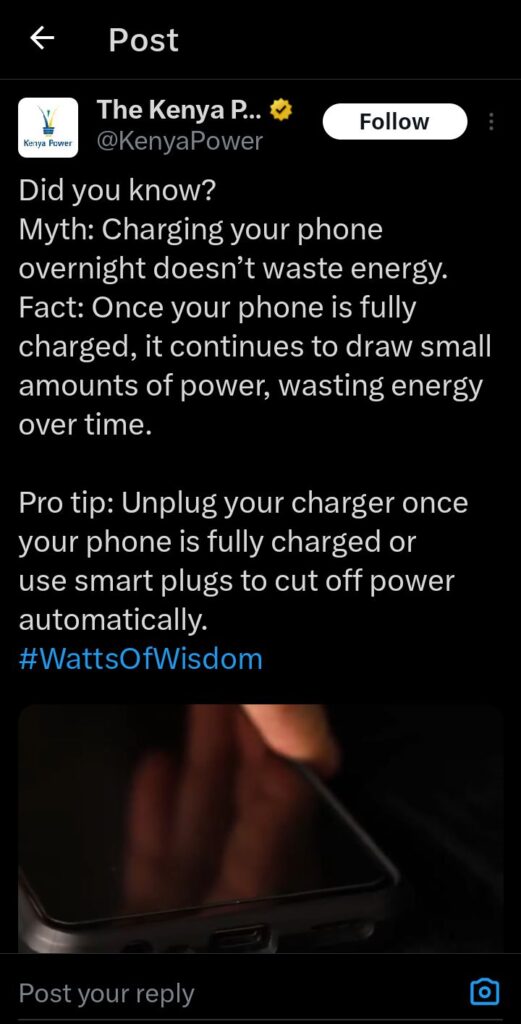You might have noticed an extra charge on your electricity bill, but did you know that charging your phone overnight could be contributing to the rising costs?
In today’s fast-paced world, it is common to plug in our phones before sleeping to ensure they are fully charged by morning.
However, this seemingly harmless habit could be costing you more than you think in terms of energy consumption and safety risks.
Modern smartphones are equipped with smart charging technology that stops the flow of electricity once the battery is full. However, this does not completely stop energy consumption.
Even though the phone may not be actively drawing power, it continues to consume small amounts of electricity throughout the night.
Over time, these small amounts add up, leading to higher electricity bills.
The Kenya Power and Lighting Company (KPLC) recently addressed this issue in a post shared on Friday, January 17. KPLC debunked the myth that charging a phone overnight does not waste energy, stating that even after the battery is full, small amounts of energy are still drawn, which increases electricity costs.
KPLC emphasized that the habit of overnight charging is not only wasteful but also unnecessary.
To help reduce electricity bills, KPLC advises the public to unplug their phones once they are fully charged.
They also recommend using smart plugs, which automatically cut off power when the device reaches full charge.

By adopting these practices, households can manage their energy consumption more efficiently and save on costs.
Apart from the financial impact, overnight charging can also pose serious safety risks.
Continuous charging generates heat, which, in extreme cases, may lead to fires.
This risk is further heightened when people place their charging phones under pillows or stack other objects on top of them.
Such practices restrict heat dissipation, increasing the likelihood of overheating and potential fire hazards.
Additionally, leaving your phone plugged in for extended periods can affect its battery health.
Lithium-ion batteries, which are used in most smartphones, degrade faster when exposed to prolonged charging cycles.
This can shorten your phone’s lifespan, forcing you to replace it sooner than expected.
Avoiding the habit of charging your phone overnight is not just about saving on your electricity bill; it is also about ensuring your safety and prolonging your phone’s lifespan.
By making small changes like unplugging your phone before sleeping or using smart plugs, you can make a big difference in reducing energy waste and avoiding potential risks.
